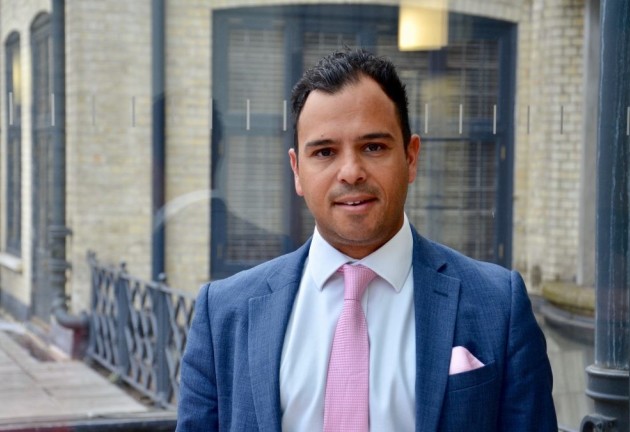Daniel Leff - Masters in Healthcare & Design
What course do you teach on and what is your role?
 I am the course Director of the Masters in Healthcare & Design.
I am the course Director of the Masters in Healthcare & Design.
I am also Module Co-Lead for the Neuroergonomics and Sensing module of the MRES Medical Robotics and Image Guided Intervention
As a Consultant Surgeon, I work closely with the London General Surgical Skills Programme, supporting the development of novel teaching methods for training in Oncoplastic Breast Surgery.
How has your career led you to teaching?
Teaching, mentoring and supervision has been at the forefront of my career development. I thoroughly enjoy passing on knowledge, skills and approaches that students can use to develop and grow and become better clinician scientists. I am fortunate that my career to date has provided numerous opportunities for teaching and training. I co-lead the breast surgical training programme in the breast unit at Imperial and am lead trainer for the national advanced national training interface fellowship at Imperial and co-developed and validated novel methods for training in oncoplastic breast surgery. As a passionate photographer I have learned to think differently about the way in which information, communication and narratives are constructed and was fortunate to be involved in a design collaborations in partnership with the HELIX Centre, which progressed to leading on re-design of patient pathways, patient flows and clinical environments. I am incredibly fortunate to be able to pass on some of what I learnt working in collaboration with the Royal College of Art through the Healthcare and Design Masters. My role as clinical lead of the Neuroergonomics and Perception research laboratory has led me to supervise postgraduate doctoral students working with neuroimaging systems for evaluation of surgical skills, fatigue and cognitive load, as well as to study neuroergonomic instrument and robot designs. Myself and my team now teach on the MRES in Medical Robotics and Image Guided Intervention theory which allows us to pass on knowledge, skills and techniques that may improve medical robotic design.
What aspect of the course do you enjoy teaching the most?
The Healthcare & Design programme is a unique programme internationally and is conducted in collaboration with the Royal College of Art. The most enjoyable aspects for me are the eclectic mix of students from a diverse range of backgrounds including healthcare, service design, fashion and architecture. Unsurprisingly, leveraging all this experience has led to some fascinating and impactful Healthcare Design dissertation ranging from public health campaigns around antimicrobial resistance, to kits that alleviate anxiety in paediatric patients through to ergonomic redesign of crash trolleys.
What do you hope your students will go on to achieve on completion of this course?
I hope by the end of the Healthcare Design Masters course the students have all the skills they need to rapidly research, synthesise and prototype novel design led solutions to healthcare challenges.
What is your favourite part about teaching at Imperial College London?
The constant strive for excellence in all we do, and the fact that we are always looking to capitalise on interdisciplinary approaches to problem solving. The courses I teach on have evolved hugely for the better, and that is thanks to the module leads, administrators and Faculty listening and responding to the feedback of students and staff.


